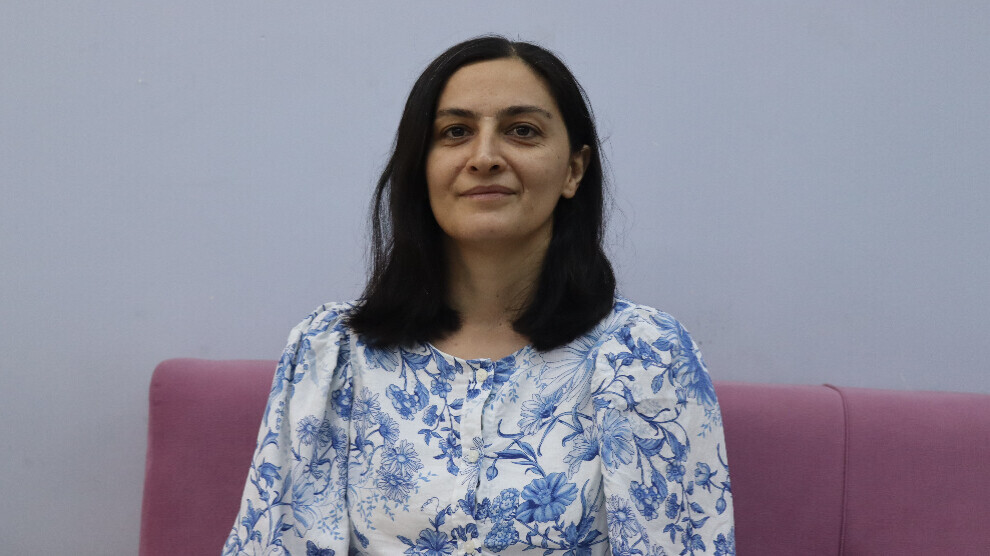‘Eastern Kurdistan is the cornerstone of regional democratic transition’
Jineology Academy member Bahar Awrîn says the nation-state system is the reason for the increase in wars and crises in the Middle East, stressing that the new map of the region should be reshaped by a democratic approach.

AVRÎN NAVDAR
News Center- The conflict that broke out between Israel and Iran on June 13 heralded a new era in the Middle East. The conflict has been intensified as Israel and Iran trade missile strikes targeting strategic facilities as the US strikes on Iranian nuclear facilities on Sunday raise concerns, escalating the tension in the region.
NuJINHA spoke to Bahar Awrîn, member of the Jineology Academy, about the recent developments in the region and the possible consequences of the conflicts in the region.
‘The nation-state system is the reason for the conflicts’
Bahar Awrîn thinks that the reason for wars and conflicts in the Middle East is not the interests of the people but the authoritarian regimes' search for regional hegemony. “The balance of power has changed since the start of the conflict between Israel and Hamas on October 7, 2023, reigniting the tension among Iran, Israel and the US. Nation-states try to maintain their power by starting wars and conflicts, instead of finding solutions to crises. This system represents the interests of the governments, not the people. The real solution is to build a democratic system recognizing the will of the people in the region.”
‘Iran has not kept its promises’
Iran has not kept its promises to its people since the revolution in 1979, said Bahar Awrîn, stressing that the Iranian regime has implemented oppressive and anti-women policies to control society. “The Iranian people struggle against oppression and international embargoes; however, the regime still rejects change,” said Bahar Awrîn, indicating that countries like Iran have two options: either democratic transition or inevitable collapse.
Jin, Jiyan, Azadî: A historical resistance
The “Jin, Jiyan, Azadî” movement led by women in Iran is not just a wave of protests but also a historical resistance for democratic transition, Bahar Awrîn stressed, adding:
“This resistance is a demand for freedom and not only for women's rights but also for the rights of the whole society. This resistance led by women was the strongest social reaction that shook the regime.
‘Eastern Kurdistan is the cornerstone of regional democratic transition’
Eastern Kurdistan (Rojhelat or Iranian Kurdistan) is the cornerstone of democratic transition in the Middle East, Bahar Awrîn emphasized. “Iranian women have the power to change their society. Those in power are afraid of the courage of women. Hundreds of women are held in prison, some are at imminent risk of execution for fighting for their rights.”
‘The call for peace and democratic society is the key to the solution’
Bahar Awrîn also mentioned the “Call for Peace and Democratic Society” made by Kurdish leader Abdullah Öcalan on February 27, 2025, stating that the call offers a solution for all people in the Middle East. “The 50-year struggle of the Kurdish freedom movement shows how people can organize themselves and how a free life can be built. The unity of women and people can build both freedom and peace in the Middle East.”
